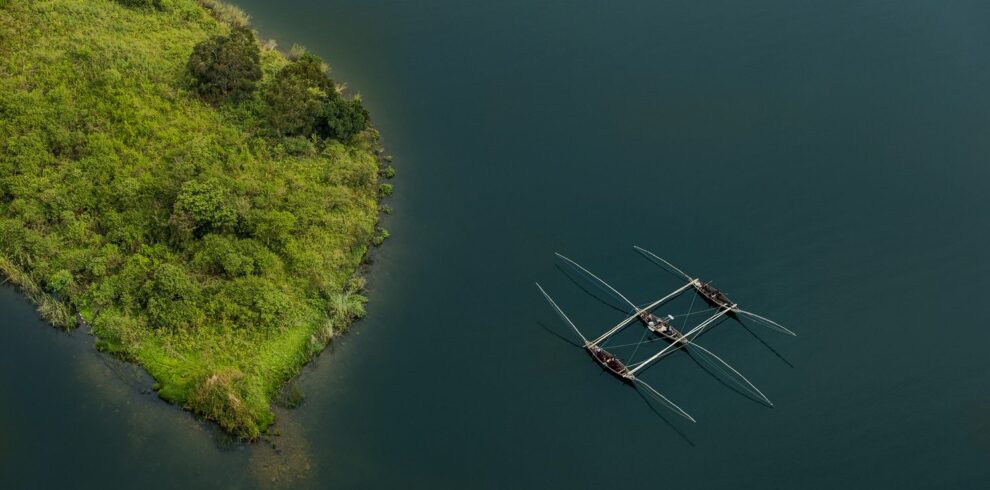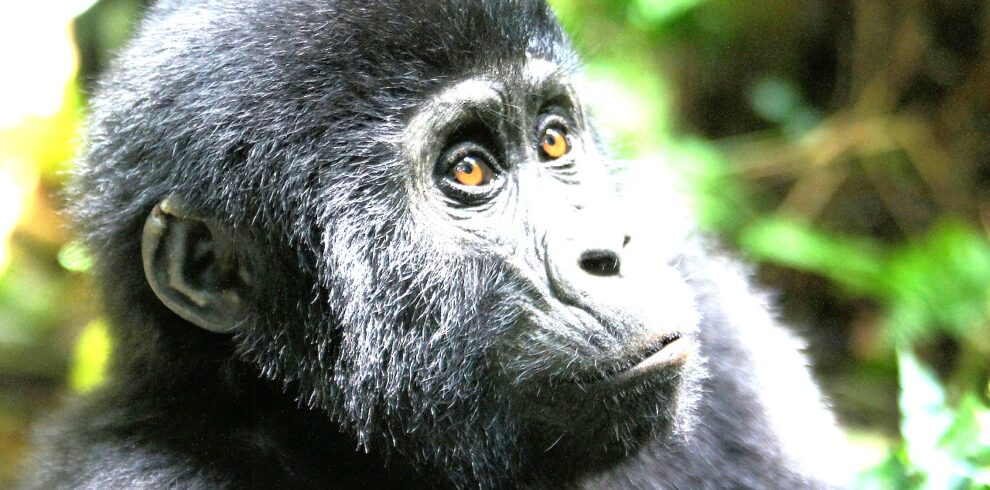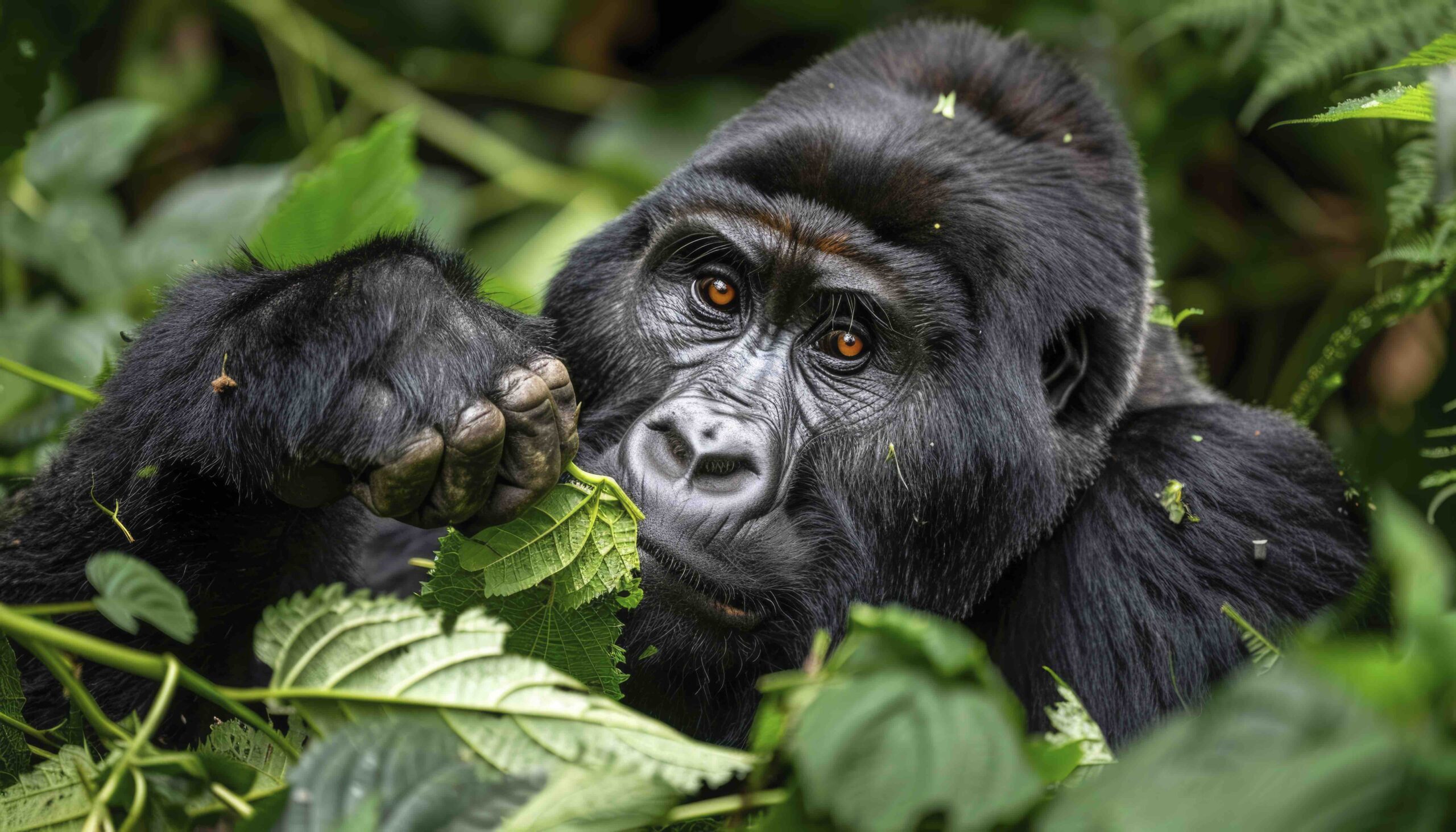Rwanda Travel Tips & Advice
Track Mountain Gorillas and Explore Rwanda’s Wild Beauty with Expert Guides
Money & Spending
Rwanda’s official currency is the Rwandan franc (RWF), but for convenience, it’s highly recommended to bring US dollars (only post-2003 bills) or euros in cash, especially for large payments or currency exchange. Traveler’s cheques are not ideal, as they tend to carry poor exchange rates and are rarely accepted.
For the best rates, do your currency exchange in Kigali, where bureaux de change typically offer better value than banks. Outside the capital, access to banking services is very limited, so plan ahead and handle all major transactions before venturing into rural areas.
While credit cards (especially MasterCard) are accepted at some upscale hotels, restaurants, and lodges in Kigali, they are not widely used across the country. Always carry some cash, particularly when traveling to national parks, local markets, or remote regions. For gorilla trekking permits and high-end bookings, most operators will accept international transfers or card payments arranged in advance.
Tipping
Tipping in Rwanda is not widely expected, but it is appreciated—especially in higher-end restaurants, where a 10% gratuity is standard. When dining in Kigali or staying at luxury lodges, tipping staff who provide excellent service is a thoughtful gesture.
During a gorilla trekking safari, tipping is optional but highly encouraged. Your porter, who may assist with carrying your gear and helping you navigate steep or muddy terrain, typically receives the largest tip. A second tip can be shared among your guide, trackers, and armed ranger escorts—many of whom are former poachers now working in conservation thanks to tourism.
Hiring a porter is not only helpful for your comfort but also supports the local community. Porters provide physical support, help you manage your daypack, and offer encouragement on the challenging return trek. Tipping your porter generously is a meaningful way to show appreciation.
If you’re unsure how much to tip or want to follow local standards, ask one of our Africa Safari Experts for up-to-date tipping guidelines—they’re always happy to help you travel respectfully and responsibly.
Climate
Rwanda enjoys a temperate tropical highland climate, with average temperatures ranging from 12°C (54°F) to 27°C (81°F) year-round. Thanks to its elevation, the weather remains mild and pleasant, making it a great destination at any time of year.
The rainy seasons occur from March to April and October to mid-December, bringing heavier downpours that can make hiking trails slippery and challenging. For the best gorilla trekking conditions, plan your visit during the dry seasons: June to September or late December to February. These months offer better visibility, drier trails, and more comfortable trekking experiences.
Refer to our Best Time to Visit Rwanda guide for detailed climate charts, seasonal travel tips, and expert advice on planning your gorilla trekking adventure.
What To Pack
To make the most of your gorilla trekking experience in Rwanda, proper preparation and packing are essential. Be sure to bring long, thick trousers, long-sleeved shirts, and gaiters or long socks to guard against safari ants. Sturdy, waterproof hiking boots are a must (break them in beforehand), along with gardening gloves to protect your hands from stinging nettles. A rain jacket, hat, and warm fleece are important, as mountain climates can be cold and damp. Pack sunscreen, insect repellent, a change of clothes, and any necessary medications in your daypack—especially if you’re trekking at higher altitudes or prone to motion sickness.
When it comes to clothing colors, stick to earth tones like greens and browns to blend into the forest and avoid startling wildlife. Avoid black and blue, which can attract tsetse flies, and skip strong perfumes that may deter animals. If you’re visiting local communities, consider bringing along small gifts like school supplies or soccer balls for village children. For a safer and more rewarding trek, consult your doctor about any recommended vaccinations or altitude medicationsin advance.
Flights & Getting Around
Did you know Makali Safaris can help you book your flights as part of your custom safari itinerary? For more information, visit our Flights section or speak to one of our Rwanda Safari Experts. Most guests arrive through Gregoire Kayibanda International Airport, just a short drive from Kigali. This international hub is served by direct flights from Brussels and regional connections from Nairobi, Entebbe, Lusaka, and Johannesburg, making it easy to reach Rwanda from anywhere in Africa or beyond.
At Makali Safaris, we arrange all your ground and air transfers for a seamless experience. It’s about a 2.5-hour scenic drive from Kigali to the famed Volcanoes National Park—home to Rwanda’s iconic gorilla trekking. Prefer to travel in style? Ask us about luxury helicopter transfers from Kigali to Nyungwe Forest National Park. Thanks to Rwanda’s compact size, most safari destinations are just four to five hours apart by road. And while in Kigali, don’t miss out on the fun of hopping on a local moto-taxi—a quick and authentic way to experience the capital city.
Visa & Passport Requirements
All visitors to Rwanda must hold a passport valid for at least six months beyond the date of entry. Tourist visas are required for most nationalities, except citizens of the USA, UK, Canada, Germany, Sweden, Hong Kong, Kenya, and South Africa, who can enter visa-free.
Travelers can obtain a multiple-entry tourist visa from their nearest Rwandan embassy or consulate, or apply online prior to arrival. These visas are typically valid for up to three months and can be extended on a month-to-month basis in Kigali for an additional fee. At Makali Safaris, we’re happy to assist with visa guidance and ensure your travel documents are in order for a smooth, stress-free arrival.
Gorilla-Trekking Permits
A gorilla-trekking permit is essential. It is important to note that children under 15 are not permitted on gorilla treks.
About Rwanda
History & Economy
Rwanda, a land once ruled by powerful pre-colonial kingdoms and cattle-owning dynasties, was largely untouched by the transatlantic slave trade. However, it later fell under colonial rule—first by the Germans and then the Belgians—until gaining independence in 1962. While its post-independence journey has seen its share of challenges, including the 1994 genocide, Rwanda has since undergone an extraordinary transformation. Today, the country is known for its remarkable recovery, stability, and its growing influence in East and Central Africa.
Agriculture remains the backbone of Rwanda’s economy, accounting for 40% of GDP and employing around 90% of the workforce—mostly in subsistence farming. However, cash crops like tea and coffee, along with mining rare metals, contribute to the country’s exports. Increasingly, tourism has become Rwanda’s leading source of foreign exchange, thanks to its pristine national parks, gorilla trekking experiences, and sustainable eco-tourism initiatives. At Makali Safaris, we’re proud to be part of this positive story, connecting travelers to Rwanda’s incredible natural beauty and resilient spirit.
People & Culture
Green, fertile, and historically rich, Rwanda is one of Africa’s most densely populated countries, with over 11 million people living in an area smaller than Belgium. The country’s earliest known inhabitants were the Twa, a pygmy hunter-gatherer people, followed by Hutu farmers, who now make up over 80% of the population. The Tutsis, traditionally cattle-herders, arrived later and once held political dominance. Today, Rwanda places strong emphasis on national unity, and ethnic distinctions are no longer officially recognized—part of the country’s remarkable post-genocide healing and reconciliation efforts.
Rwanda is a young nation, with more than 40% of the population under the age of 15. The majority of Rwandans are Catholic, followed closely by Protestants. Kinyarwanda, French, and English are the country’s official languages, and visitors often find Rwanda safe, welcoming, and easy to navigate. Music and dance—especially traditional drumming—are central to Rwandan culture, as is the country’s strong oral storytelling tradition, rich with poetry and folklore. At Makali Safaris, we encourage guests to explore these cultural treasures alongside Rwanda’s natural wonders.
Landscape & Wildlife
Nicknamed the ‘Land of a Thousand Hills’, landlocked Rwanda lies in the heart of East Africa. Its breathtaking landscape is shaped by volcanoes, forested mountains, rivers, and scenic lakes. Positioned along the Albertine Rift Valley, Rwanda boasts one of the most bio-diverse regions in the world. While much of its rolling hill country has been converted into terraced farmland, its large wildlife populations thrive within three protected reserves.
The most iconic of these is Volcanoes National Park, home to nearly half of Africa’s remaining mountain gorillas and the heart of Rwanda’s renowned gorilla trekking experiences. In the south, Nyungwe Forest National Park shelters a wide variety of primates, including chimpanzees and colobus monkeys, while Akagera National Park in the east offers classic savannah wildlife viewing, including lions, elephants, and hippos. With over 670 bird species recorded, Rwanda is also a birder’s paradise. Whether you’re seeking wildlife, scenic hikes, or unforgettable cultural encounters, Makali Safaris invites you to explore this remarkable destination.
Browse Through Rwandan Safaris






